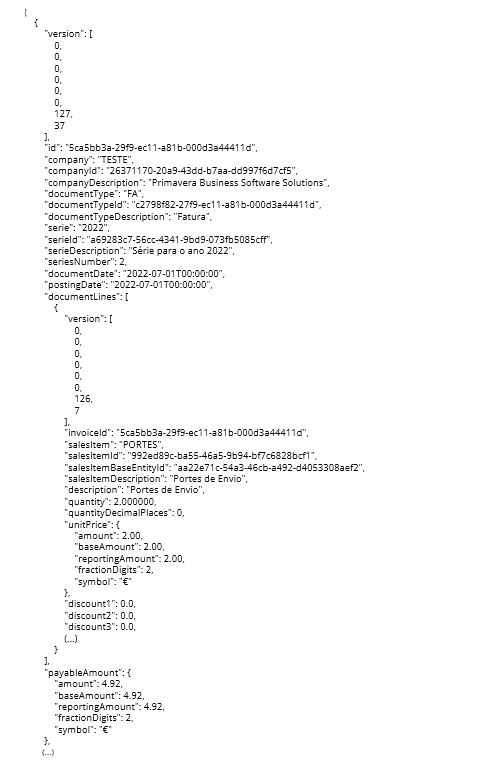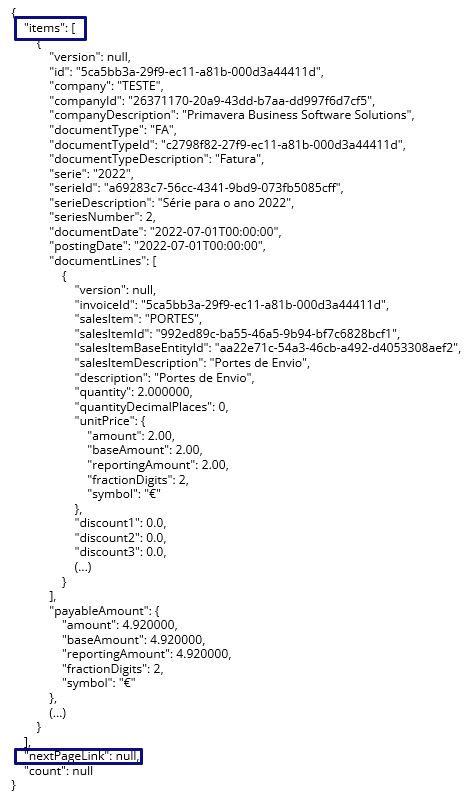Integration endpoints update
After updating the Jasmin, Rose, and Invoicing Engine platform, the GET method endpoints with the format {moduleName}/{serviceName}, to obtain all records of a collection will be discontinued on October 2022. This way, the integrations that use these endpoints should be adapted to use the format {moduleName}/{serviceName}/odata. These odata methods have better performance and allow to perform multiple operations on a collection at once, such as $select, $filter, $count, $top or $orderby. We recommend that you perform this verification and consequent update until September 30, but it is possible to perform it at any time. For more information on how to execute odata queries on Jasmin data, please read the support article. The following are examples with and without the odata method when obtaining invoices: As you can see on the example, the odata method output has a few differences:Differences
login para deixar a sua opinião.

